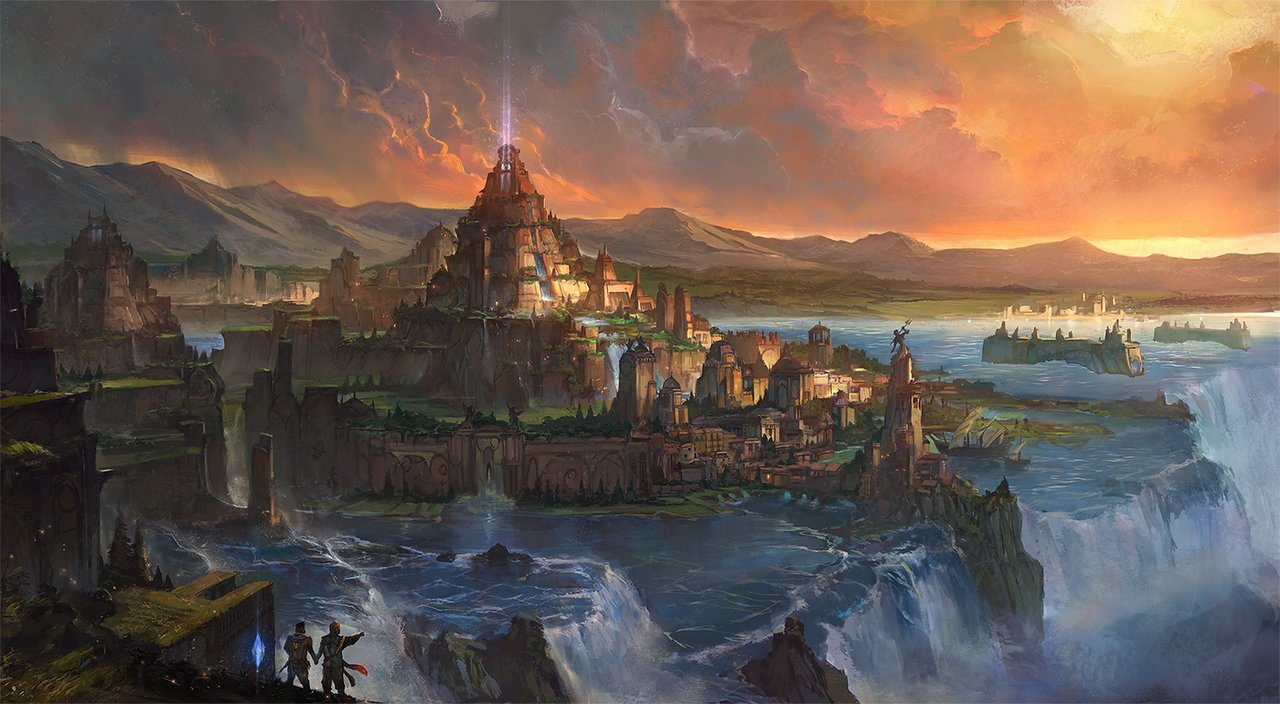Deep beneath the vast expanse of the ocean lies a mystery that has captivated the imaginations of explorers, historians, and dreamers for centuries. This enigma is none other than the fabled city of Atlantis. A mythical realm shrouded in intrigue, Atlantis has left an indelible mark on our collective consciousness. Join us on a journey to unravel the secrets of this ancient civilization, as we delve into the captivating myth of Atlantis.
The Rise and Fall of Atlantis:
According to ancient Greek philosopher Plato, Atlantis was an advanced and prosperous civilization, known for its grandeur and unmatched achievements. It is said to have existed approximately 9,000 years before Plato’s time, situated beyond the Pillars of Hercules, which are believed to be the modern-day Strait of Gibraltar. Atlantis was an idyllic utopia, flourishing under the divine guidance of Poseidon, the god of the sea.
But as with any tale of greatness, there came a tragic downfall. Legend has it that Atlantis, driven by its own ambition and hubris, became corrupted. Its people grew arrogant and sought to conquer neighboring lands. This act of defiance angered the gods, who unleashed a cataclysmic event that swallowed the majestic city beneath the waves, erasing it from the annals of history.
Uncovering the Clues:
While Atlantis remains lost to the depths of the ocean, its existence continues to captivate scholars and treasure seekers alike. Countless expeditions have been mounted, searching for remnants of this enigmatic civilization. From Plato’s writings to ancient maps and geological anomalies, a wealth of clues has emerged over time, fueling speculation and theories about the possible location of Atlantis.
Some believe that Atlantis may have been a real place, now hidden beneath layers of silt and sediment. The discovery of submerged ruins in places like the Caribbean and the Mediterranean further fuel these theories, hinting at the possibility of a submerged city awaiting its rediscovery.
The Hidden Legacy:
The allure of Atlantis goes beyond the physical remnants that may lie beneath the waves. It has become a symbol of a lost paradise, a reminder of the heights humanity can achieve and the perils of overreach. The story of Atlantis serves as a cautionary tale, urging us to respect the delicate balance between progress and wisdom.
As we bring our exploration of the myth of Atlantis to a close, we find ourselves standing at the precipice of wonder and uncertainty. Is Atlantis merely a figment of our collective imagination, a symbol of our yearning for a lost paradise? Or does it exist, hidden away in some unexplored corner of the world, patiently awaiting its rediscovery?
Some theorists propose that Atlantis might be located in Africa, a land rich with ancient civilizations and secrets yet to be unveiled. Could the vast and diverse continent hold the key to unlocking the mysteries of this enigmatic city? Are there ancient ruins lying silently, buried beneath layers of sand and time, waiting for intrepid explorers to stumble upon them?
Or perhaps Atlantis is a manifestation of our deepest desires and aspirations—a metaphorical realm that reminds us of the heights humanity can reach and the consequences of overreaching. It serves as a constant reminder that there are realms of knowledge and wisdom that lie beyond our grasp, yet continue to captivate our imagination.
Ultimately, the truth about Atlantis remains elusive. It resides in the realms of legend, myth, and speculation. It is the ever-elusive puzzle that keeps us searching, questioning, and dreaming. The mystery of Atlantis invites us to embrace the unknown, to push the boundaries of our understanding, and to never stop seeking the extraordinary in the ordinary.









